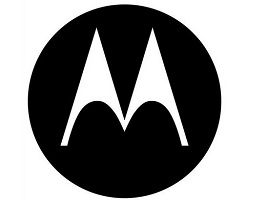Google Unloads Motorola Mobility
The smarter way to stay on top of the multichannel video marketplace. Sign up below.
You are now subscribed
Your newsletter sign-up was successful

In a deal that further unravels Google’s original $12.5 billion acquisition of Motorola Mobility in 2012, Google announced Wednesday that it will sell Moto’s smartphone business to China’s Lenovo for $2.91 billion in cash and stock.
Lenovo, known for its PC prowess, reasons that the deal will strengthen its growing smartphone business, giving it a strong presence in North America and Latin America and a foothold in Western Europe.
Under the deal, Lenovo will pay $1.41 billion ($660 million in cash and $750 million in Lenovo shares), with the remaining $1.51 billion coming in the form of a three-year promissory note.
Lenovo, which bought IBM’s PC business and ThinkPad brand in 2005, is getting the Motorola brand and trademark portfolio, and Motorola Mobility’s lineup of phones, including the Moto X, Moto G and Droid Ultra series. It's also taking ownership of Moto’s product device roadmap.
Google, meanwhile, keeps the bulk of Motorola Mobility’s patent portfolio, including current patent applications and invention disclosures, which all served as they big reason why Google wanted Motorola Mobility in the first place – to protect Google and Android from lawsuits from other suppliers in the mobile device and software ecosystem. Lenovo, in turn, will get a license to Google’s patents and intellectual property, and receive "over 2,000 patent assets" from Google.
The sale should allow Google to focus on the Android platform while also removing a part of its business that competed with companies that make Android-powered smartphones. Last April, Google closed the $2.35 billion sale of its cable-focused Motorola Home unit to Arris. Google held onto a 7.7% stake in Arris, but doesn't have a board seat.
“Lenovo has the expertise and track record to scale Motorola Mobility into a major player within the Android ecosystem. This move will enable Google to devote our energy to driving innovation across the Android ecosystem, for the benefit of smartphone users everywhere,” Google CEO Larry Page said, in a statement.
The smarter way to stay on top of the multichannel video marketplace. Sign up below.
With all of the subsequent sales and other activities factored in, Google's overall investment since the acquisition into Motorola Mobility has been about $9.3 billion, meaning Google "effectively paid roughly $6.4B for a patent portfolio, which Google valued at $5.5B in their FY12 10-K," Bernstein Research analyst Carlos Kirjner wrote in a research note issued Wednesday.
Kirjner added that, beyond the patents, the firm didn't view Motorola's business "as a large source of upside or downside to Google's core business, so we see its sale as a minor event, perhaps on the margin positive as it removes execution risk. First, we thought that beyond the patents, which Google is retaining presumably to defend Android, the major strategic value of the MMI business to Google was to create an option for a long-term feasible and profitable, third or fourth player in the smart phone business in addition to Samsung, Apple, and perhaps LG."
